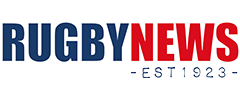
How do they compare? 1991 v 1999 v 2015
| Sep 22 2015
By Jim Webster
With the World Cup upon us, there’s now much conjecture as to whether the 2015 Wallabies have anything like the high-level skills of our 1991 and 1999 teams that carried off the William Webb Ellis Trophy.
The answer comes down to this: in some areas they have; in others they haven’t.
Let us start by saying that our current threequarter line has much to offer in Israel Folau, Adam Ashley-Cooper, Rob Horne, Kurtley Beale, Matt Giteau, Bernard Foley, Drew Mitchell and Tevita Kuridrani. Between them they have speed, exceptional ball skills and much creativity.
But look at the 1991 backs and it’s hard to suggest they could match the explosive powers that came from a lineup featuring Nick Farr-Jones, Michael Lynagh, Tim Horan, Jason Little and the incomparable David Campese (he didn’t even know what he was doing; so how could an opposition imagine what he was up to?).
That team also had more than its share of great forwards with the man of the match in that final,




